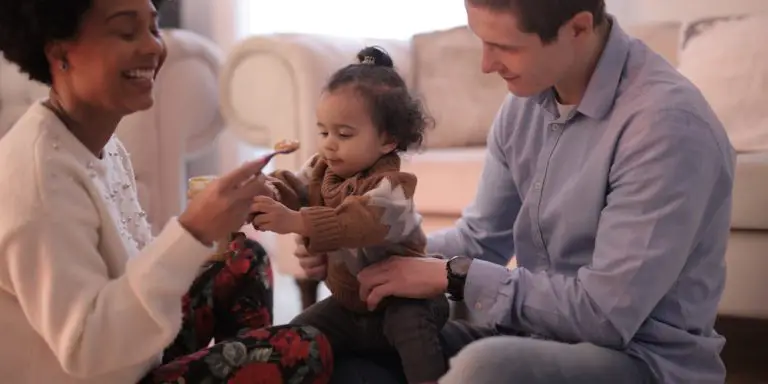
In this article, you’ll discover the transformative journey of dating after divorce.
Introduction: Dating After Divorce
Dating after divorce can be a transformative journey filled with healing, growth, and the possibility of finding love once again.
It is a time to reflect on the past, rediscover oneself, and open up to new experiences.
This article aims to guide you through this process, offering insights, advice, and practical tips to navigate the world of dating after divorce.
Healing from the Past
Acknowledging Your Emotions
Healing begins with acknowledging and accepting the range of emotions that come with divorce. Allow yourself to feel and express your emotions, whether it’s sadness, anger, or confusion.
Recognize that it’s normal to experience a mix of emotions and that they are an essential part of the healing process.
Seeking Support
Don’t hesitate to seek support during the healing process. Surround yourself with trusted friends, family, or a support group who can provide a listening ear and empathetic understanding.
Consider seeking the help of a therapist or counselor who specializes in divorce or relationship issues. Talking to a professional can provide valuable guidance and tools for healing.
Practicing Self-Care

Make self-care a priority as you heal from the past. Take care of your physical, emotional, and mental well-being.
Engage in activities that bring you joy and relaxation, whether it’s practicing mindfulness, engaging in hobbies, or exercising. Nourish your body with healthy foods and prioritize getting enough rest.
Self-care nurtures your overall well-being and aids in the healing process.
Letting Go of Resentment
Resentment can weigh heavily on your heart and hinder the healing process. Work on letting go of resentment towards your ex-spouse or anyone else involved in the divorce.
Forgiveness doesn’t mean forgetting or condoning what happened but rather releasing the negative emotions that keep you tied to the past.
Freeing yourself from resentment allows space for healing and personal growth.
Rediscovering Your Identity
Divorce often leads to a reevaluation of your identity and sense of self. Take this opportunity to rediscover who you are as an individual.
Explore your interests, passions, and values. Engage in activities that bring you a sense of fulfillment and help you reconnect with yourself.
Embracing your individuality contributes to the healing process and sets the stage for a brighter future.
Setting Boundaries
Establishing clear boundaries is crucial for healing from the past. Communicate your boundaries with your ex-spouse, family members, and friends.
Be firm in enforcing those boundaries to protect your well-being. Setting boundaries helps you create a safe space for yourself and promotes emotional healing.
Practicing Self-Reflection
Engage in self-reflection as you heal from the past. Take time to examine your role in the relationship and the divorce.
Learn from your experiences and identify areas for personal growth. Self-reflection allows you to gain insights and make positive changes moving forward.
Embracing New Beginnings
Healing from the past is about embracing new beginnings and allowing yourself to move forward. Embrace the opportunities that come your way and be open to new experiences.
Focus on creating a vision for your future and take steps towards your goals. Embracing new beginnings instills hope and optimism in your life.
Remember, healing from the past is a process that takes time and patience. Be gentle with yourself and allow yourself to heal at your own pace. By acknowledging your emotions, seeking support, practicing self-care, and embracing new beginnings, you can embark on a journey of healing and create a brighter future.
Embracing Growth
Rediscovering Your Identity
Divorce can sometimes leave individuals feeling lost or disconnected from their sense of self. Use this time to explore your passions, hobbies, and interests. Reconnect with who you are and what makes you unique.
Setting Boundaries
Establish clear boundaries to protect your emotional well-being. Clearly communicate your needs and expectations to potential partners. This will create a healthy foundation for future relationships.
Redefining Your Priorities
Divorce often prompts a reassessment of priorities and values. Use this opportunity to redefine what truly matters to you in life. Reflect on your goals, aspirations, and what brings you fulfillment.
This process allows you to align your actions with your authentic self and make choices that support your personal growth.
Embracing Change and Adaptability
Divorce brings significant changes to your life, and embracing these changes with adaptability is key to personal growth.
Rather than resisting or dwelling on what was lost, focus on the possibilities that lie ahead.
Embrace the unknown, be open to new experiences, and cultivate a mindset that sees change as an opportunity for growth.
Building a Support Network
Navigating the challenges of divorce and embracing personal growth can be made easier with a strong support network.
Surround yourself with friends, family, and professionals who provide encouragement, guidance, and understanding.
Seek out support groups or therapy to connect with others who have gone through similar experiences.
These connections can offer valuable perspectives and help you grow emotionally and mentally.
Investing in Self-Development
Divorce provides an ideal time to invest in your personal development. Explore new interests, enroll in courses or workshops, and broaden your knowledge and skills.
Engaging in activities that stretch your abilities and expand your horizons can lead to personal growth and a stronger sense of self.
Cultivating Self-Compassion
Divorce can leave individuals feeling self-critical and questioning their self-worth. Practicing self-compassion is essential during this time.
Treat yourself with kindness, understanding, and forgiveness. Acknowledge that healing and growth take time, and be patient with yourself as you navigate this transformative journey.
Embracing Independence
Divorce often involves a transition from being part of a couple to embracing independence. Embrace this newfound independence as an opportunity to discover yourself.
Embrace your own strengths, passions, and interests. Learn to enjoy your own company and cultivate self-reliance.
This independence can empower you and contribute to your personal growth.
Remember, embracing growth after divorce is a personal journey. It’s important to honor your own timeline, needs, and emotions. By embracing change, investing in self-development, and cultivating self-compassion, you can navigate this transformative phase with resilience and emerge stronger, more self-aware, and ready to embrace new opportunities.
Navigating the Dating World
Clarifying Your Relationship Goals
Before venturing into the dating world, take the time to clarify your relationship goals. Are you looking for a long-term commitment or just companionship?
Understanding your intentions will help you communicate effectively with potential partners and ensure you’re on the same page.
Honoring Your Boundaries
Establishing clear boundaries is crucial when reentering the dating scene. Reflect on your values, needs, and deal-breakers.
Communicate your boundaries openly and assertively, ensuring that your emotional and physical well-being is respected.
Honoring your boundaries sets a strong foundation for healthy and fulfilling relationships.
Embracing Online Dating

Online dating platforms provide a convenient way to meet new people. Create an authentic and engaging profile that showcases your personality and interests. Be honest about your divorce and what you’re looking for.
Use reputable dating sites or apps that align with your relationship goals, and remember to prioritize safety by exercising caution and meeting potential partners in public places.
Taking Things Slow
After divorce, it’s essential to give yourself time to heal and adjust. Take things slow in the dating process and don’t rush into a new relationship.
Allow yourself to get to know the other person gradually. Take the time to build trust and establish a solid emotional connection before moving forward.
Effective Communication
Open and honest communication is vital when dating after divorce. Express your thoughts, feelings, and expectations clearly.
Be an active listener and show genuine interest in getting to know your potential partner. Effective communication lays the groundwork for understanding, trust, and mutual respect.
Learning from Past Experiences
Divorce provides valuable lessons that can inform your approach to dating. Reflect on your past experiences and identify patterns or behaviors that you want to avoid or change.
Use this opportunity to grow and evolve, making conscious choices that align with your newfound wisdom.
Balancing Dating with Responsibilities
If you have children or other responsibilities, finding a balance between dating and your commitments is crucial.
Communicate openly with your children about your dating life and introduce new partners gradually.
Prioritize quality time with your children and ensure that your dating activities do not disrupt their well-being.
Trusting Your Instincts
As you navigate the dating world, trust your instincts. Pay attention to how you feel around potential partners and listen to your gut feelings.
If something doesn’t feel right or raises concerns, take the time to reassess the situation. Trusting your instincts empowers you to make choices that align with your well-being.
Remember, dating after divorce is a personal journey, and there is no one-size-fits-all approach. Stay true to yourself, be patient, and trust that the right person will come into your life when the time is right.
Finding Love Again
Patience and Positivity
Finding love after divorce may take time, so be patient with yourself and the process. Maintain a positive outlook and believe in the possibility of a fulfilling relationship.
Trust that the right person will come into your life when the time is right.
Open Communication

As you begin a new relationship, prioritize open and honest communication. Share your experiences, fears, and desires with your partner. This will foster trust and deepen your connection.
Embracing Self-Love
Before finding love with someone else, it’s crucial to cultivate self-love and self-acceptance. Focus on nurturing a positive relationship with yourself.
Embrace your strengths, celebrate your accomplishments, and practice self-care. When you love and accept yourself, you attract healthier and more fulfilling relationships.
Being Open to Possibilities
Approach the process of finding love again with an open mind and heart. Be open to meeting new people, even if they don’t fit your preconceived notions.
Allow yourself to explore connections that may surprise you. Sometimes, love comes in unexpected ways and from unexpected places.
Going Beyond the Past
While it’s important to learn from your past experiences, don’t let them define your future. Let go of any resentment, bitterness, or negative emotions associated with your previous marriage or divorce.
Embrace the present moment and approach new relationships with a fresh perspective.
Trusting the Process
Finding love again takes time, and it’s essential to trust the process. Patience is key as you navigate the dating world.
Understand that not every date or connection will lead to a lasting relationship. Trust that the right person will come into your life when the time is right.
Authenticity and Vulnerability
When looking for love after divorce, embrace authenticity and allow yourself to be vulnerable. Be genuine and true to who you are.
Let potential partners see your authentic self, including your strengths and vulnerabilities. True connection and love thrive when both individuals can be open and vulnerable with each other.
Learning from Past Relationships
Reflect on the lessons learned from your previous marriage and apply them to future relationships. Identify patterns or behaviors that you want to change or avoid.
Use your past experiences as an opportunity for personal growth and to make conscious choices that align with your values and desires.
Building a Strong Foundation
As you embark on a new relationship, focus on building a strong foundation of trust, respect, and open communication.
Invest time in getting to know your partner on a deeper level. Share your dreams, fears, and goals. Building a solid foundation sets the stage for healthy and lasting love.
Allowing Love to Grow Naturally
Love is a journey, and it grows naturally over time. Avoid putting pressure on yourself or a new relationship to reach certain milestones by specific timelines.
Instead, enjoy the process of getting to know someone and allow love to develop at its own pace.
Remember, finding love again after a divorce is a unique and personal experience. Stay true to yourself, be patient, and have faith that love is possible. When the right person comes along, you’ll be ready to embrace the joy and fulfillment of a new and meaningful relationship.
Conclusion
In conclusion, dating after divorce is a transformative journey that offers opportunities for healing, growth, and finding love again. Embrace this chapter of your life with optimism and self-discovery. Remember to prioritize self-care, set boundaries, and engage in open communication. With time, patience, and a positive mindset, you can create a beautiful and fulfilling romantic future.
Frequently Asked Questions
Q: How long should I wait before dating after divorce?
A: There is no specific timeline, as it varies for each individual. It’s essential to take the time to heal and feel ready before entering the dating world again.
Q: How do I overcome the fear of getting hurt again?
A: It’s normal to have fears, but it’s important not to let them hold you back. Focus on your personal growth, set healthy boundaries, and approach new relationships with an open heart.
Q: Should I disclose my divorce when dating someone new?
A: It’s a personal decision. If you feel comfortable, sharing your divorce story can foster understanding and build trust. However, the timing and extent of disclosure should be based on your comfort level.
Q: How can I balance dating with my responsibilities as a single parent?
A: Balancing dating and parenting requires careful time management and prioritization. Communicate openly with your children and potential partners to establish a healthy balance that works for everyone.
Q: What if I face rejection while dating after divorce?
A: Rejection is a part of the dating process for everyone. Remember that it’s not a reflection of your worth. Stay resilient, maintain self-confidence, and keep moving forward.



